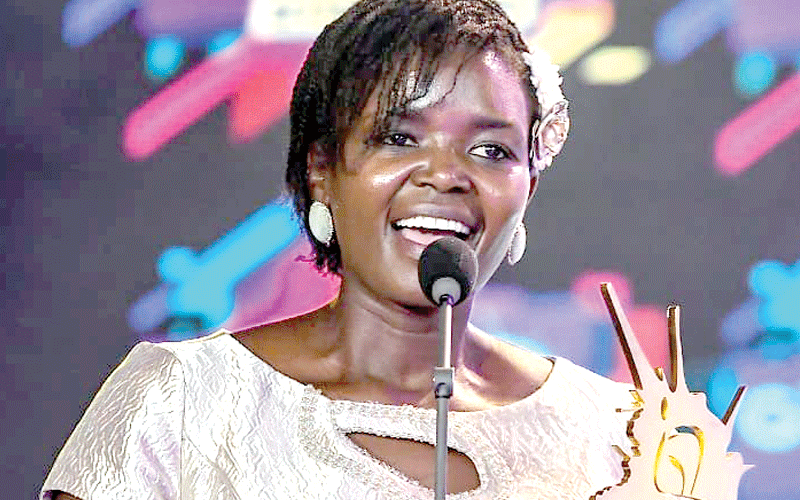Kenya entertainment industry witnesses upsurge of awarding events
By Grace Wachira, September 30, 2019
Over time, the local gospel industry has evolved with many artistes joining in to make music.
Producers and video directors, too, have increased immensely, and so have the awards that reward gospel musicians, but the question is, have these awarding events added value to the industry?
Producer and artiste Saint P compares having numerous awards to the kind of marriages our great grandparents were in.
“They had many wives and children and no third party raised an eye. All the children went on and chartered their own paths and life went on. It is the same with the awards we have.
They open more future opportunities to the players,” he said while speaking to Spice.
Previously, the premier Kenyan gospel awards, the Groove Awards—arguably the most prestigious and most recognised gospel awards with a regional resonance and relevance—dominated the scene.
New entities
More awarding events have since taken cue from Groove Awards. The latest kid on the block is the Verse5ve Awards, which was announced this July.
“We want to honour excellence and outstanding creative accomplishments by songwriters and performers in Christian urban music.

The Verse5ve Conservatoire is a collective of industry stakeholders including artistes, producers, recording engineers, songwriters, radio personalities and other key players in the entertainment fraternity,” the awards founder and CEO Albert Zakayo tells Spice.
Verse5ve awards will feature songs and artistes who have recorded masterpieces in hip-hop, R&B and Afro pop, and deejays who have been publicly vocal and committed to the growth of the Christian urban culture. They are set to debut in October.
Founded in 2017, the Kenya Gospel Music Awards (KEGMA) is another awarding event seeking to heal the ailing the gospel music industry.
“Sometimes we have low quality content, weak branding and marketing, irregular and untargeted distribution, among other weak areas.
Many budding artistes are dwarfed by the big names and struggle to penetrate into the industry, while others lack platforms that would celebrate their achievements and connect with their fans.
And that’s where we come in,” says KEGMA founder and chief executive Caleb Otieno.
He adds that the upsurge of new talents means such artistes require platforms to showcase their talents to make a career.
“The talent industry should be empowered to bring true change in the gospel creative industry.
The KEGMA platform, therefore, offers a real opportunity for gospel artistes and other individuals to open up other markets through their talents.
This helps create jobs for the young people and elevate them from poverty,” he says.
The acceptance
During his career as an artiste, singer Mr Seed has bagged a number of awards across the spectrum.
He echoes Otieno’s remarks: “I appreciate the fact that we have more talent that needs to be recognised.
When we get nominated for awards, it comes with attention and that publicity and exposure helps us build our brands as artistes.

Some of us are not on the more established awards’ radars, so getting recognised elsewhere goes a long way.”
Saint P says each distinctive awarding entity seeks to delve into an area that the other may have missed.
“Every artiste has their market niche and one award cannot serve everyone. All artistes have people they appeal to and so, the awards are viable,” he intimates.
Kenya also has the annual Maranatha Gospel Awards that aims to acknowledge worship music and encourage gospel artistes to work harder. They have nine participating countries.
Mwafaka Awards was created in 2011 with a mission to impact the gospel music industry and push it to the international platform.
An off-shoot of the Groove Awards, it started small and careful not to be seen as Groove’s competitor.
The founders said they were only out to cater for up-and-coming artistes who were not fully considered suitable for Groove awards.
Cardinal shortcomings
“I have no qualms with all these awards, but I think it would be better to award excellence.
We have a problem with the kind of music we churn out, from production to the lyrics, and that is what we should be fixing. The awards would be better if they indeed awarded great content,” says DJ Ruff.
He adds the awards could do more than just recognise them. “The winners do not get money for their wins, but they could at least organise events that the winners or nominees got to perform and consequently, get paid. Alternatively, they could sponsor their projects and encourage them musically.”
Ruff says that without true value getting to the winners, then it’s just business for the organisers.
“We get into business to make money and that is what the awards may end up doing and being set up for if they sideline the core function of having the awards in the first place,” he says.
Hypeman, emcee and vocal powerhouse Kibunjah is of the opinion that the awards subconsciously instill competition and comparison.
“They set bars and standards that are not entirely right. The recognition is always great, but they are held to a certain standard; from the way winners are chosen to how they are awarded, it would streamline things.
If it is by tallying votes sent by the fans, then the winners should at least get some monetary value for it. If not, then abort the voting method,” says Kibunjah.
He adds that with or without the money, it is upon the artistes to make the awards’ recognition work for them.
“At the end of the day, it is up to the artiste to make good use of his or her award for that year, but that said, streamlining the awards is paramount,” says the Eey Okay singer.